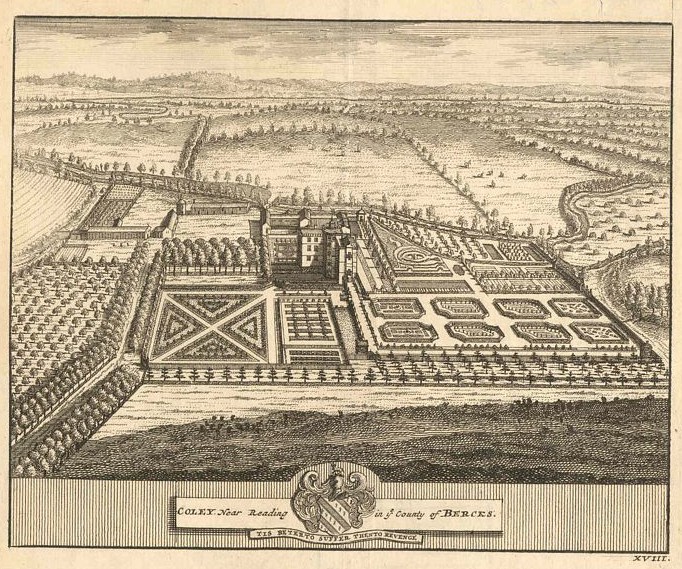Richard Thompson (MP For Reading) on:
[Wikipedia]
[Google]
[Amazon]
Richard Thompson (died 1735), of Coley, Reading, Berkshire, was a merchant in Jamaica and a Whig politician who sat in the  Thompson was the son of William Thompson and his wife Elizabeth. He owned a sugar plantation in Jamaica, maintained by many slaves. He became a colonel in the Jamaica militia and a member of the Jamaica assembly. From 1704 to 1711 he was a member of the council of Jamaica. In February 1711 he told the
Thompson was the son of William Thompson and his wife Elizabeth. He owned a sugar plantation in Jamaica, maintained by many slaves. He became a colonel in the Jamaica militia and a member of the Jamaica assembly. From 1704 to 1711 he was a member of the council of Jamaica. In February 1711 he told the
House of Commons
The House of Commons is the name for the elected lower house of the bicameral parliaments of the United Kingdom and Canada. In both of these countries, the Commons holds much more legislative power than the nominally upper house of parliament. ...
between 1720 and 1734.
 Thompson was the son of William Thompson and his wife Elizabeth. He owned a sugar plantation in Jamaica, maintained by many slaves. He became a colonel in the Jamaica militia and a member of the Jamaica assembly. From 1704 to 1711 he was a member of the council of Jamaica. In February 1711 he told the
Thompson was the son of William Thompson and his wife Elizabeth. He owned a sugar plantation in Jamaica, maintained by many slaves. He became a colonel in the Jamaica militia and a member of the Jamaica assembly. From 1704 to 1711 he was a member of the council of Jamaica. In February 1711 he told the Board of Trade
The Board of Trade is a British government body concerned with commerce and industry, currently within the Department for International Trade. Its full title is The Lords of the Committee of the Privy Council appointed for the consideration of ...
that he did not intend to return to Jamaica and was replaced on the local council. He married Jane Nicoll, and bought the manors of Whitley and Coley on the outskirts of Reading in 1727.
Thompson was High Sheriff of Berkshire
The High Sheriff of Berkshire, in common with other counties, was originally the King's representative on taxation upholding the law in Saxon times. The word Sheriff evolved from 'shire-reeve'.
The title of High Sheriff is therefore much older ...
for the year 1719 to 1720. In the course of the year there was an unexpected by-election at Reading
Reading is the process of taking in the sense or meaning of Letter (alphabet), letters, symbols, etc., especially by Visual perception, sight or Somatosensory system, touch.
For educators and researchers, reading is a multifaceted process invo ...
on 15 March 1720, when he was returned in a contest as a Whig Member of Parliament
A member of parliament (MP) is the representative in parliament of the people who live in their electoral district. In many countries with bicameral parliaments, this term refers only to members of the lower house since upper house members of ...
. Later in 1720 he was one of the patentees of the Royal Mining Company which was formed to develop gold and silver mines in Jamaica. After they invested their subscribers’ funds in the South Sea Company
The South Sea Company (officially The Governor and Company of the merchants of Great Britain, trading to the South Seas and other parts of America, and for the encouragement of the Fishery) was a British joint-stock company founded in Ja ...
the company went into liquidation. Thompson was defeated at Reading at the 1722 British general election
The 1722 British general election elected members to serve in the House of Commons of the 6th Parliament of Great Britain. This was the fifth such election since the merger of the Parliament of England and the Parliament of Scotland in 1707. Tha ...
but was returned successfully at the 1727 British general election
The 1727 British general election returned members to serve in the House of Commons of the 7th Parliament of Great Britain to be summoned, after the merger of the Parliament of England and the Parliament of Scotland in 1707. The election was trigg ...
. He voted for the Administration on the army in 1732 and on the Excise Bill
The Excise Bill of 1733 was a proposal by the British government of Robert Walpole to impose an excise tax on a variety of products. This would have allowed Customs officers to search private dwellings to look for contraband untaxed goods. The per ...
in 1733. He did not stand at the 1734 British general election
The 1734 British general election returned members to serve in the House of Commons of the 8th Parliament of Great Britain to be summoned, after the merger of the Parliament of England and the Parliament of Scotland in 1707. Robert Walpole's incr ...
.
Thompson probably died before the end of 1736 leaving three daughters, Frances, Jane and Ann who married Sir Philip Jennings-Clerke, 1st Baronet
Sir Philip Jennings-Clerke, 1st Baronet ( – January 1788) was a British politician who sat in the House of Commons from 1768 to 1788, and the 1st Jennings-Clerke Baronet.
Life
Jennings was the son of Philip Jennings of Duddleston Hall, Shropshi ...
.
References
{{DEFAULTSORT:Thompson, Richard 1735 deaths Members of the Parliament of Great Britain for English constituencies British MPs 1715–1722 British MPs 1727–1734 Politicians from Reading, Berkshire British slave owners